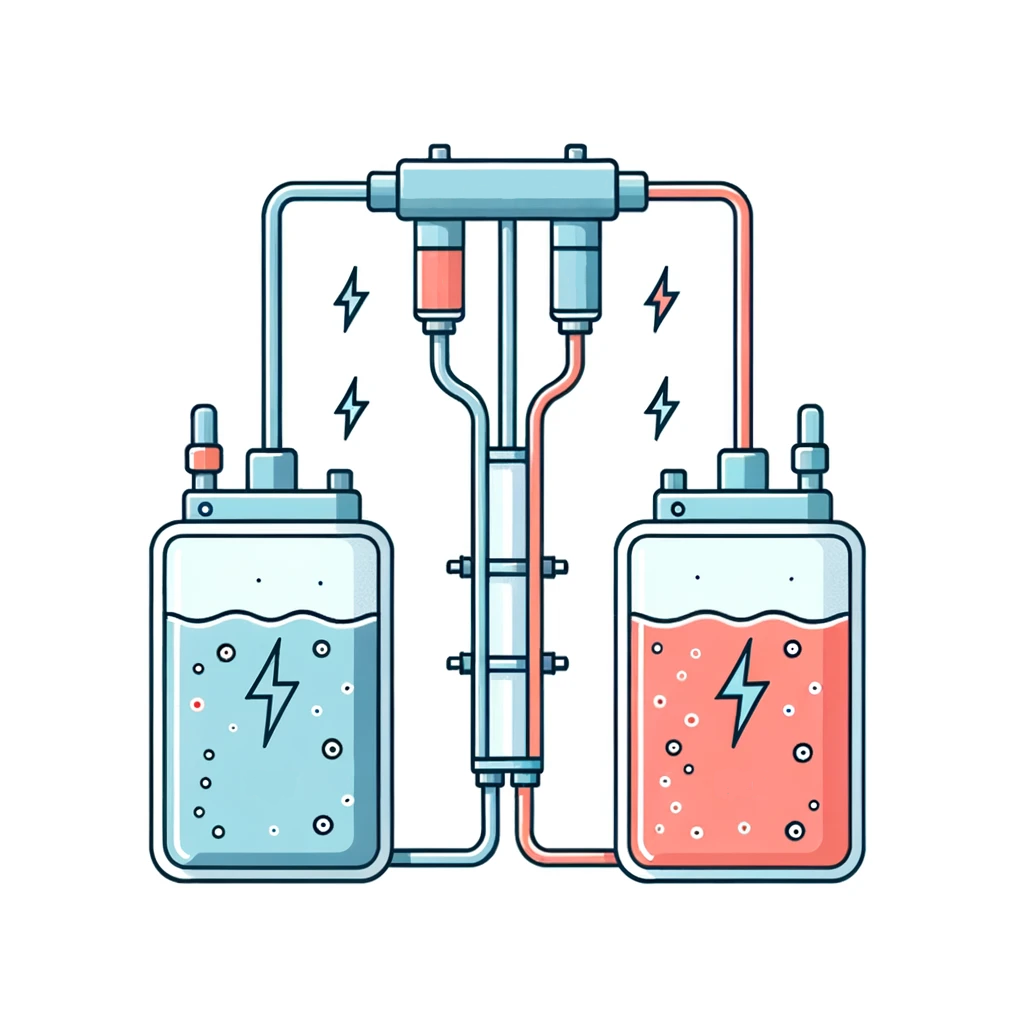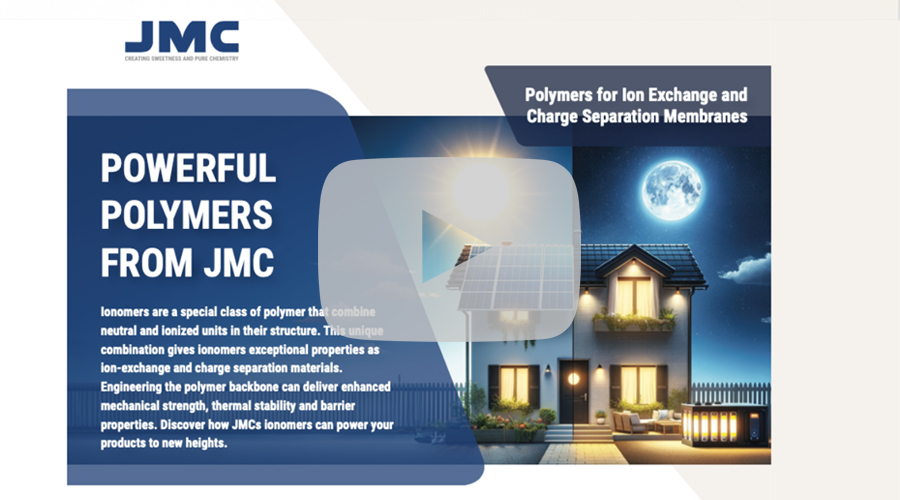Powerful Polymers: Ionomers

Ionomers are a special class of polymer that combine neutral and ionized units in their structure. This unique combination gives ionomers exceptional properties as ion-exchange and charge separation materials. Engineering the polymer backbone can deliver enhanced mechanical strength, thermal stability and barrier properties. Discover how JMCs ionomers can power your products to new heights.
Powerful Applications Require Powerful Polymers
Ionomers play a key role in a wide variety off applications where charge separation and ion selective charge transport are required. Key applications include:
- Electrolysis Cells: These use electricity to generate hydrogen from water, using conducting electrodes and an ionomer-based membrane.
- Fuel Cells: These combine hydrogen and oxygen to produce energy. The durability of ionomer membranes and their tunable conductivity make ionomers promising candidates for high-temperature fuel cell membranes.
- RFB Cells: Ionomers are the core material in membranes used in Redox Flow Batteries (RFBs), particularly Vanadium Redox Flow Batteries (VRFBs)
- Separation Membranes: Some hydrocarbon ionomers are biodegradable or recyclable, offering a more sustainable alternative to traditional materials. In particular, hydrocarbon ionomers can be engineered to be fluorine-free.
- Sensor Applications: Tailored ionomers can be used in next-generation ion-selective sensors.
Hydrocarbon Ionomers
Ion Exchange and Charge Separation
Hydrocarbon ionomers are a revolutionary class of materials that feature ionic groups on hydrocarbon backbones. This combination offers distinct advantages over traditional ionomers and unlocks exciting possibilities across various fields.
One important class of hydrocarbon ionomers are sulfonated ionomers. The manufacture of these materials draws on JMCs key strengths in sulfonating materials and handling the associated byproducts and wastes.
Key Features of Hydrocarbon Ionomers:
- Excellent Durability: The hydrocarbon backbone provides superior strength and stability, making these ionomers suitable for harsh environments.
- Enhanced Processability: Hydrocarbon ionomers can be easily shaped into films, membranes and other desired forms, increasing their versatility.
- Tunable Conductivity: By adjusting the type and amount of ionic groups, the ionomer’s ability to conduct electricity can be tuned for specific applications.
- Environmental Friendliness: Some hydrocarbon ionomers are biodegradable or recyclable, offering a more sustainable alternative to traditional materials. In particular, hydrocarbon ionomers can be engineered to be fluorine-free.
Sulfonated Polysulfone: The Next Generation Ionomer Material
Sulfonated polysulfones (sPSU) are a cost-effective and high-performance option for your ionomer needs. These polymers can be realized using JMC’s long-standing and deep expertise in sulfonating materials.
Here’s why sPSU is the ionomer of the future:
- Cost-Competitive: Compared to traditional ionomers like Nafion®, sPSU offers a significant cost advantage, making it ideal for various applications.
- Excellent Film-Forming Ability: sPSU readily forms thin, uniform films, crucial for optimal performance in ionomer applications.
- Outstanding Thermal and Mechanical Stability: sPSU boasts exceptional resistance to heat and mechanical stress, ensuring long-lasting performance in demanding environments.
- Tunable Proton Conductivity: By adjusting the degree of sulfonation, sPSU’s proton conductivity can be tailored for specific applications.
- Promising Candidate for PEM Applications: sPSU is emerging as a frontrunner for Proton Exchange Membrane (PEM) fuel cells, offering a viable alternative to traditional materials.



